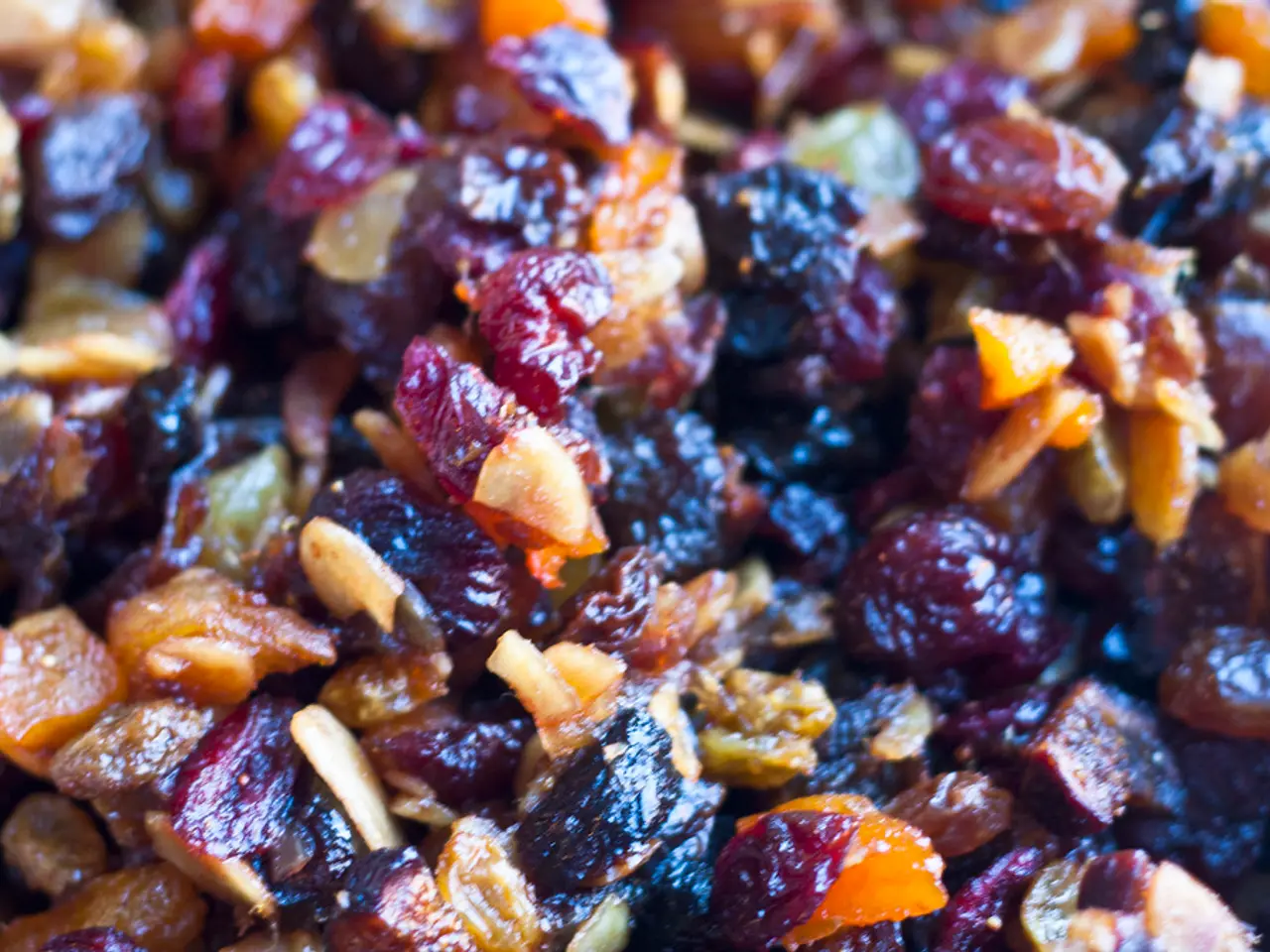Improving Gut Health for Muscle Growth: A Comprehensive Guide
Impact of Intestinal Wellness on Muscle Development
The gut, a complex ecosystem teeming with trillions of bacteria, microbes, and other tiny organisms collectively known as the gut microbiome, plays a crucial role in muscle growth. Maintaining a healthy gut microbiome can significantly impact muscle recovery, hormone regulation, and overall performance.
To improve gut health and support muscle growth, focus on consuming a diet rich in diverse plant-based foods, high-fiber and prebiotic foods, fermented probiotics, and healthy fats, combined with lifestyle changes that support digestion and recovery.
Foods That Help Gut Health and Muscle Growth
High-quality protein sources that support muscle repair and growth include chicken, turkey, eggs, tofu, beans, lentils, tempeh, and plant-based seeds like hemp and sunflower seeds. Prebiotic-rich foods such as garlic, onions, asparagus, bananas (slightly green), oats, apples, legumes (lentils, chickpeas), and whole grains feed beneficial gut bacteria. Fermented foods like plain Greek yogurt, kefir, sauerkraut, kimchi, and tempeh provide probiotics, introducing beneficial bacteria directly to the gut, aiding digestion and nutrient absorption. Diverse plant foods—aim for at least 30 different types weekly including fruits, vegetables, nuts (almonds, walnuts, cashews), and seeds (chia, pumpkin, hemp, sunflower)—promote a varied and healthy gut microbiome. Healthy fats, especially omega-3 fatty acids found in nuts, seeds, and fatty fish like salmon, reduce inflammation and support muscle recovery and gut health. Complex carbohydrates from whole wheat pasta, rice, buckwheat, and legumes provide energy and fiber needed for gut bacterial diversity and sustained workouts.
Lifestyle Modifications to Support Gut and Muscle Health
Staying well-hydrated is essential for supporting digestion and nutrient transport. Managing stress, as it influences gut health and muscle recovery, is crucial. Regular physical activity supports a diverse gut microbiome and muscle hypertrophy. Gradually introducing high-fiber and fermented foods can minimize digestive discomfort like gas or bloating. Monitoring gut health via symptoms like reduced bloating, less muscle soreness, and improved recovery can help adjust your diet accordingly.
Summary
Optimizing gut health for muscle growth involves consuming a balanced, protein-rich diet with ample fiber, prebiotics, and probiotics, alongside healthy fats and complex carbs, as well as lifestyle habits that promote digestion and recovery. Fermented foods and diverse plant sources are especially crucial for maintaining a robust gut microbiome that enhances nutrient absorption vital for muscle building. Improving gut health is not an overnight process; it may take several weeks to months to fully see the impact on muscle growth. In the journey to build muscle, prioritizing gut health is important as it helps the body absorb nutrients, regulate hormones, and reduce inflammation, leading to optimal performance and recovery.
- Incorporating a workout routine that includes weight-lifting and cardio exercises is essential for muscle growth.
- Yoga, a therapeutic practice that promotes flexibility and relaxation, aids in muscle recovery and supports overall fitness.
- Nutrition, particularly a balanced diet with the right proportion of proteins, carbohydrates, and fats, is crucial for muscle growth and recovery.
- Supplements like creatine, BCAA, and glutamine can aid in muscle recovery and growth, when combined with a healthy diet and exercise.
- Lack of sleep can impair muscle growth and recovery, making it essential to ensure proper sleep hygiene and adequate rest.
- Workplace wellness programs that promote healthy living and stress reduction can contribute to better physical and mental health, which in turn benefits muscle growth and recovery.
- Health and wellness stores offer a variety of supplements, probiotics, and natural remedies for improved gut health, like CBD oil or sports supplements.
- Skin-care routines that focus on hydration and nourishment can indirectly support muscle growth by maintaining overall health.
- Therapies and treatments like physiotherapy and massage can help manage injuries and accelerate muscle recovery.
- Medicare often covers the cost of essential treatments and medications for weight management, which may indirectly impact muscle growth by ensuring proper nutrition and health.
- Mental health plays a significant role in how the body responds to exercise and recovery, emphasizing the importance of maintaining mental balance during fitness and exercise routines.
- Consuming a diet rich in foods that contain omega-3 fatty acids, such as fish, helps reduce inflammation, enhancing muscle recovery and promoting long-term muscle growth.




